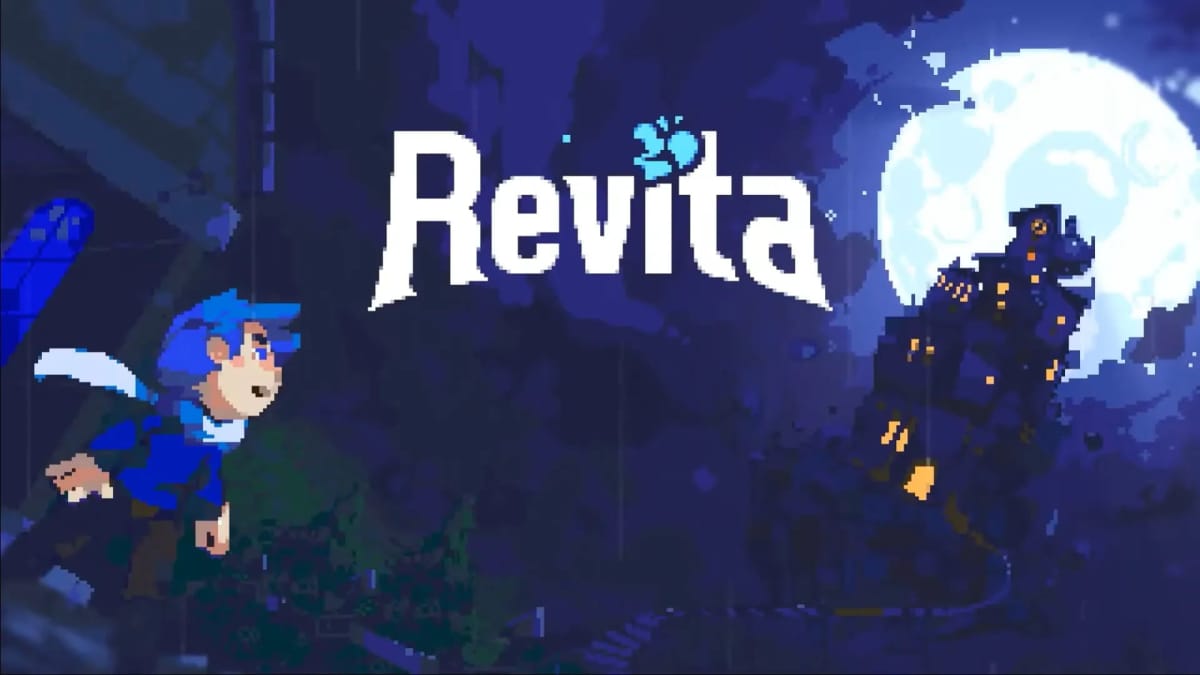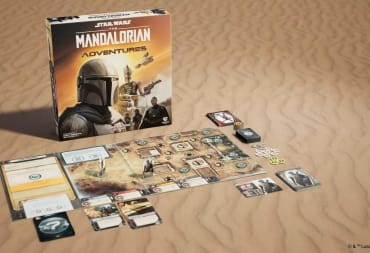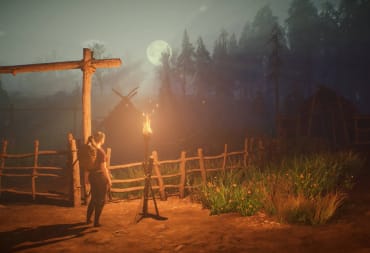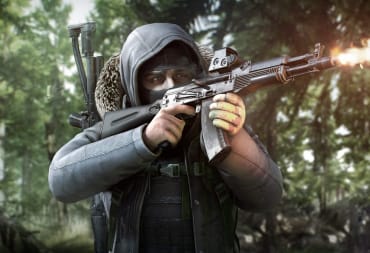The gaming sphere is truly an incredible one that is loaded with so many experiences. Unfortunately, this can be a bit of a double-edged sword. With so much out there, how can you possibly hope to really stand out? Luckily, all you need is one really great gimmick and Revita has managed to find it.
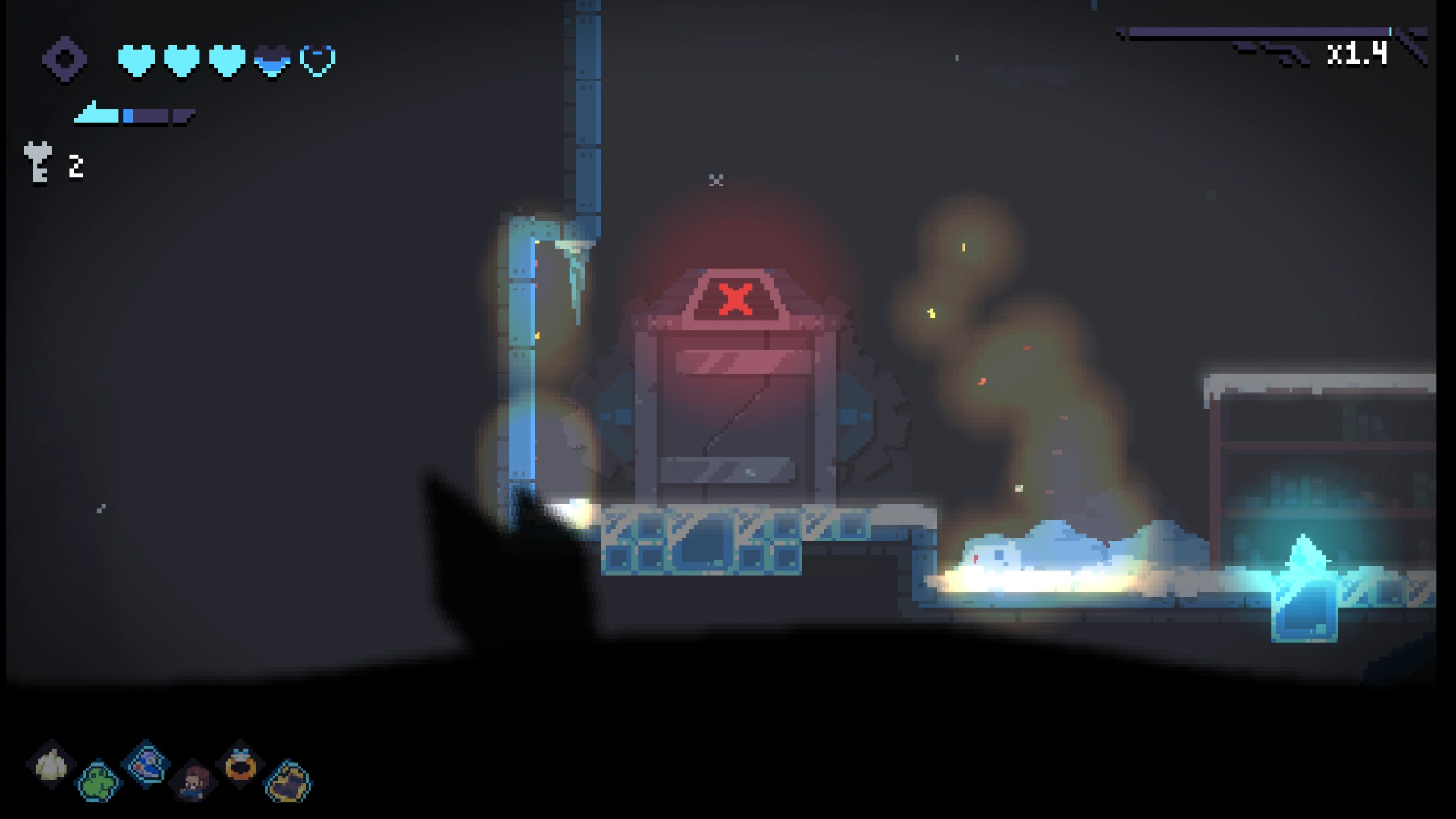
Before we get into what makes it stand out, it's probably important to start with what feels familiar about the base experience. Revita is a roguelite with charming sound and even more charming visuals. Being a twin-stick shooter, it focuses on fast shooting, micromanaging resources and just barely scraping by each level. You are tasked with hopping on a train, ascending a tower and fighting your own grief on the way. With the main bosses taking inspiration from the stages of grief, its central gimmick works into the meta-narrative in a fascinating way.
In Revita, your currency, life force and pretty much everything you do is determined by your HP. You pick up souls from dead enemies that are converted into a meter that can then be concentrated into refilling spent hearts or upgrading your max HP. The key is that refilling a heart fully only takes two charges and making a new one takes four. If you are at full HP, you will automatically start working towards your next new heart.
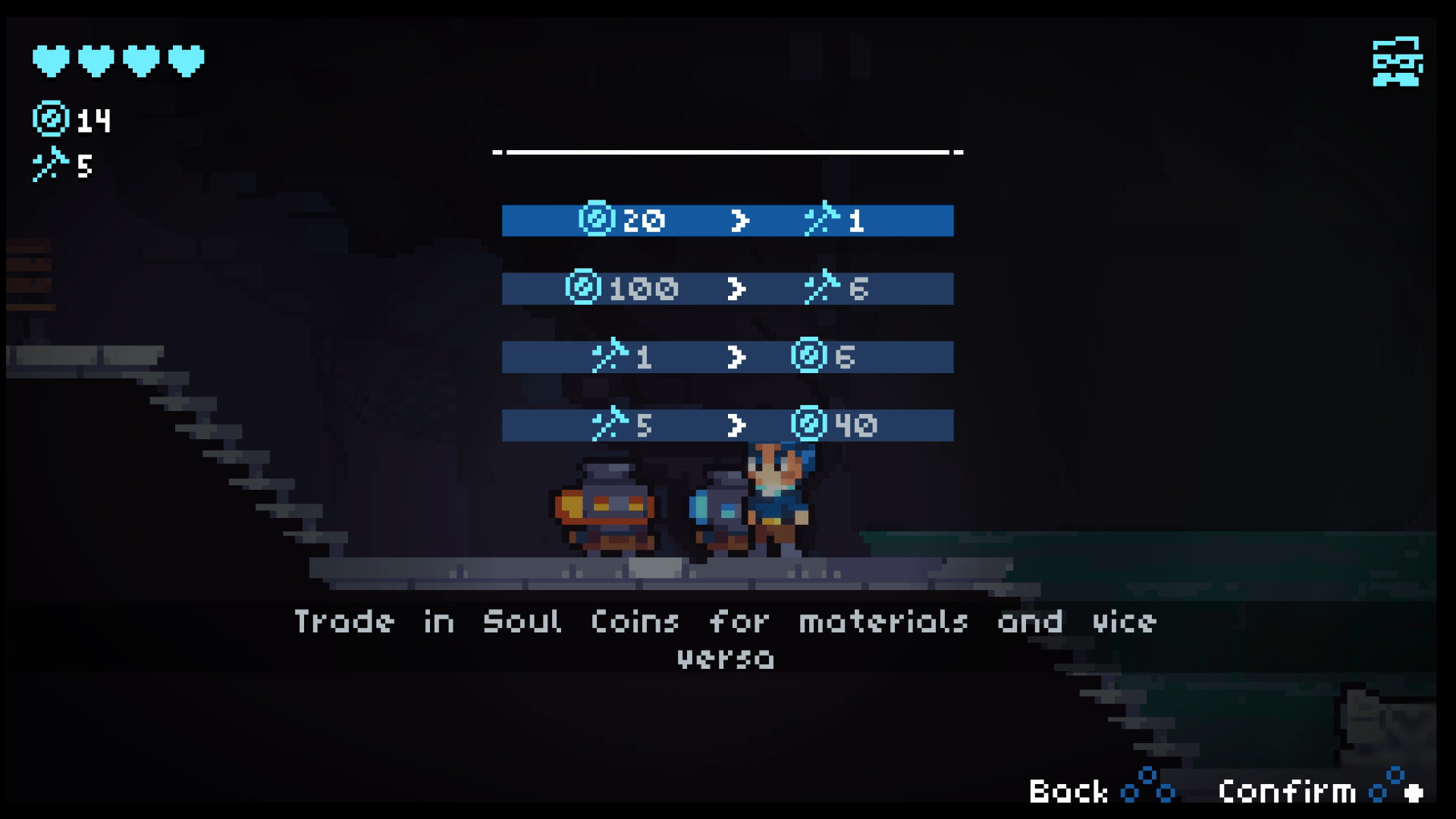
You can buy things by spending your life force or getting rid of max HP, leaving this excellent risk/reward system. On one hand, you can cut down your max HP for a crucial upgrade or you can spend the life force for a different path. This plays into surprisingly mature storytelling about loss, grief and what it takes to move on. Though the story itself isn't always at the forefront, there's so much subtext here to explore that really helps to build a central atmosphere. Sometimes, you need to give a little of yourself to fully get through it but your ability to move forward can leave you stronger than you started.
Though this dynamic takes some time to get used to, it works wonderfully well by the end. Being a roguelite, every run leaves you feeling a little stronger and a bit more prepared to take on the world. You are given two currencies that are kept throughout runs. One is used to buy new items to appear in each dungeon, as well as new hats for your character. Another is used to buy new weapons and shape up new rooms for subsequent runs. In this sense, as well as adding to your repertoire of abilities, you get very tangible upgrades, allowing you to discover important new rooms or get small bonuses in the right area.
Revita is a game about creating builds, memorizing patterns and employing a little bit of creativity to get the very best run. Unfortunately, this brings me to perhaps one of the only main downsides while playing. As the central tiers of the towers are themed around the steps you take when grieving, they have to play into specific aesthetics. Bosses remain the same and many of the areas feel a little too familiar to really play on the best that randomly generated runs have to offer.
Of course, there's an argument to be made that keeping bosses consistent fits that meta narrative a little better but there are certainly ways to get around this. Grief follows some steps but it doesn't always hit people the same.
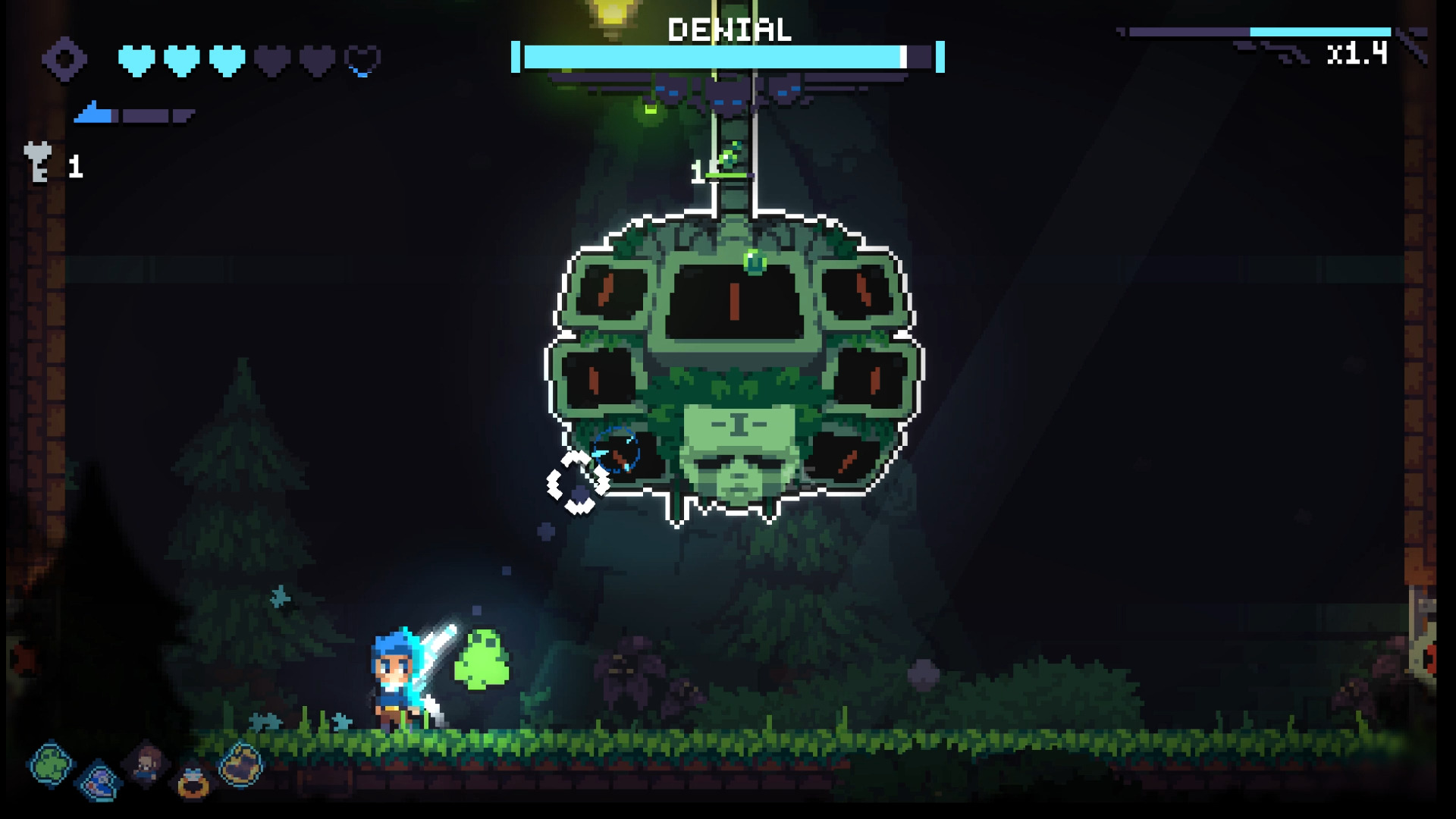
In this sense, runs aren't quite as varied and fun as I would have liked. They certainly get a little more adventurous as new rooms are unlocked and new skills come out, but the grind to that is a little slow and the bosses don't tend to evolve into much more. As you progress, the speed of the game becomes quicker and more fun, but it certainly takes a while to get there.
In this sense, with such small arenas, enemies often feel fairly similar. Some of them will rush you as you come in and some of them will fire from a distance. You can jump over them or use your dash to go right through them. Then, you take them down one by one and harvest their souls. The movement system is fluid and fun -- never quite distracting from all that is happening on screen.
One thing Revita does really well is balance its difficulty. Every time I felt stumped by something, I had to think about it and how to tackle it for a few minutes before I was ready to take it down. Deaths in Revita feel deserved and intentional, due to all those tiny decisions you make and misclicks you don't mean to.
It helps that the game's pixel art and soundtrack work in its favor. In its prettiest moments, they work to build atmosphere -- at its dearest, they manage to make you feel truly lonely. They are expressive and pretty while also being just vague enough to really touch at your nostalgia bone. Though this is a style fairly played out in the genre, it more than justifies itself.
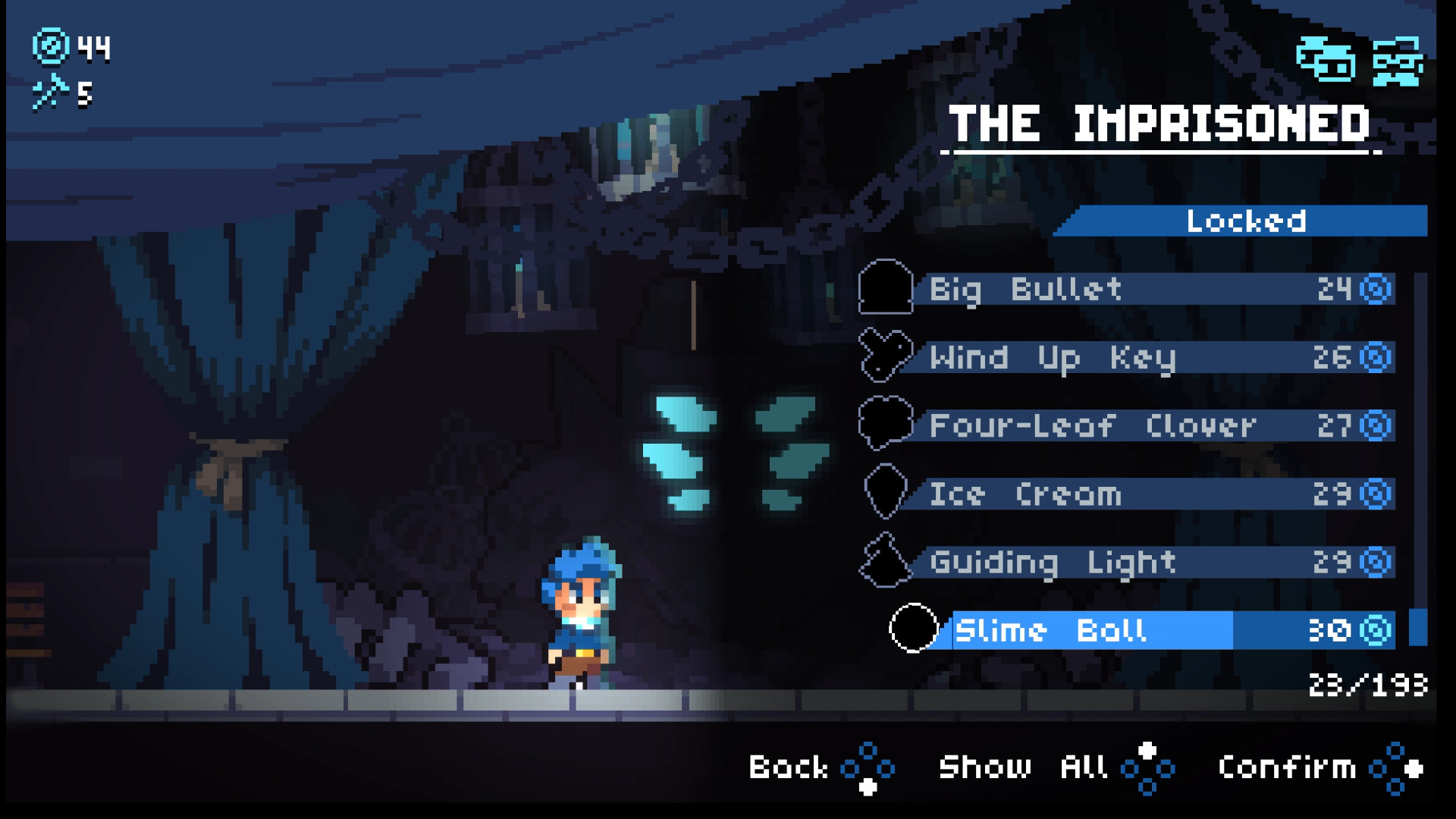
Revita Review | Final Thoughts
Revita is a fascinating roguelite with so much to offer. Its levels can feel a little shallow and its bosses feel a little too familiar by the end, but its charming graphics, tight controls, and fantastic central gimmick leave it standing out in a market filled with competitors. If you are feeling a little tired of what roguelites have to offer, Revita might just touch your heart.
TechRaptor reviewed Revita on PC with a code provided by the publisher. The game is also available on Nintendo Switch
Review Summary
Pros
- Great Central Gimmick
- Plenty of Upgrades
- Fitting Visuals and Sound Design
Cons
- Same bosses leave runs feeling a little shallow
- Small arenas and pool of enemies can get grindy
Have a tip, or want to point out something we missed? Leave a Comment or e-mail us at tips@techraptor.net
